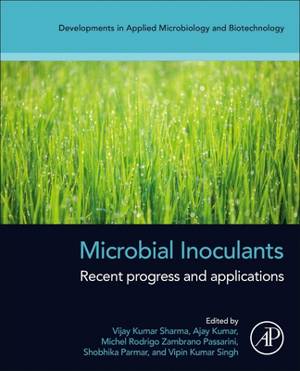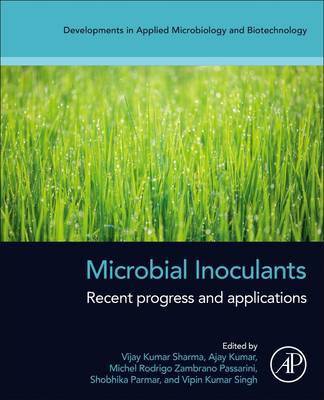
- Retrait gratuit dans votre magasin Club
- 7.000.000 titres dans notre catalogue
- Payer en toute sécurité
- Toujours un magasin près de chez vous
- Retrait gratuit dans votre magasin Club
- 7.000.0000 titres dans notre catalogue
- Payer en toute sécurité
- Toujours un magasin près de chez vous
Microbial Inoculants
Recent Progress and Applications
232,95 €
+ 465 points
Description
In the recent past, beneficial microorganisms have been sustainably used in agriculture as a safe, economic, and effective alternative to chemical fertilizers or pesticides. These beneficial microbes, including bacteria, actinomycetes, and yeast, were efficiently applied in soil, seeds, fruits, or plants as inoculants, to achieve the optimum agricultural yield. An efficient delivery method or enhanced shelf life of microbial inoculants in the soil or seed is still a matter of concern. The response of local genetic or ecological factors, after microbial applications, are also unknown and less studied. Therefore, Microbial Inoculants: Recent Progress and Applications fulfills the need to explore and learn about an efficient delivery mechanism, selection of microbial strain as inoculants, and related technological advances, for the efficient and productive use of microbial inoculants. Moreover, factors like methods of formulation, interaction between host plant and microbe, impact of inoculation on the metabolomics of plants, the effect of microbial inoculants on soil dynamics, proteomics approach of plant-microbe interaction, as well as the registration and regulation process of bio inoculants for commercial production are described in 16 chapters by the leading academicians and researchers from different parts of the world.
Spécifications
Parties prenantes
- Editeur:
Contenu
- Nombre de pages :
- 384
- Langue:
- Anglais
- Collection :
Caractéristiques
- EAN:
- 9780323990431
- Date de parution :
- 26-05-23
- Format:
- Livre broché
- Format numérique:
- Trade paperback (VS)
- Dimensions :
- 190 mm x 235 mm
- Poids :
- 449 g

Les avis
Nous publions uniquement les avis qui respectent les conditions requises. Consultez nos conditions pour les avis.





